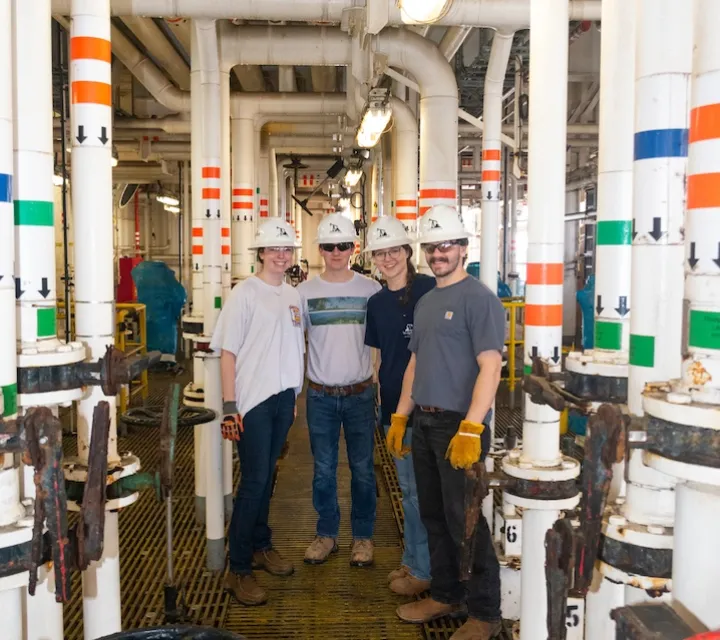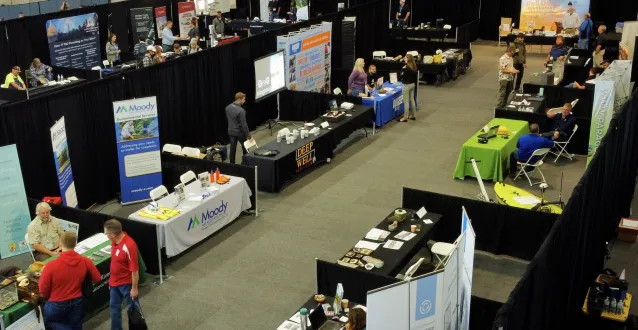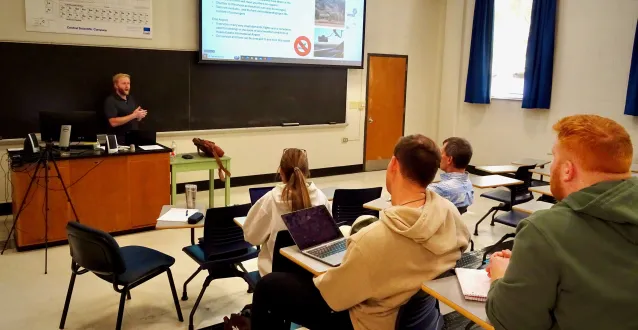What Can You Do With a Degree in Petroleum Engineering?
Driven and adventure-seeking students use their abilities and take charge of their future in Marietta College’s Petroleum Engineering Program. This competitive major prepares students to thrive in careers in upstream oil and gas operations, specializing in reservoir engineering, drilling engineering, production engineering, completions engineering, and upper-level management. Our talented professors have extensive industry experience and are wholly dedicated to providing a comprehensive, in-depth education that is based in the liberal arts.
Marietta’s Petroleum Engineering degree is one of the top of its kind in the country. With our state-of-the-art facilities, leadership-focused courses, and abundant study-abroad opportunities, this program is unlike any other in the nation. Over the course of their education, our students evolve into effective communicators, analytical problem solvers, and globally-minded professionals ready for the demands of an international career in petroleum engineering.
Students gain insight into every aspect of the oil and gas industry from experts in the field and conduct groundbreaking research with leading faculty. This Bachelor of Science program produces some of the most sought-after graduates in the nation. At Marietta College, you have the power to blaze a new trail in the competitive field of engineering.
Marietta College has the only accredited liberal arts-based undergraduate petroleum engineering program in the nation and is internationally accredited by the Engineering Accreditation Commission of ABET, Inc.

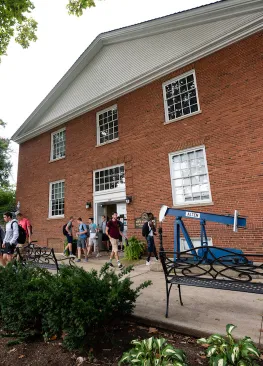
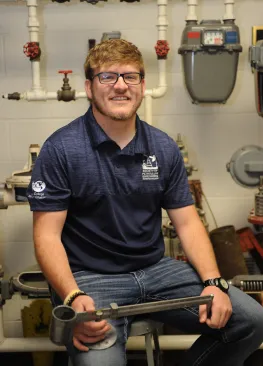

What You’ll Learn as a Petroleum Engineering Major
Our comprehensive curriculum establishes a firm core foundation of concepts required by all engineering disciplines, with the first two years of the major exploring courses such as advanced calculus, chemistry, and engineering reasoning.
Accreditation
The Edwy R. Brown Department of Petroleum Engineering and Geology offers a B.S. degree program in petroleum engineering that is accredited by the Engineering Accreditation Committee (EAC) of ABET, Inc., a federation of 35 professional and technical societies that is recognized as a U.S. accreditor of college and university programs.
We are a highly respected department and have been continuously accredited since 1984, the first petroleum engineering program at a liberal arts teaching college to receive accreditation. Our focus is on student learning, allowing each student to receive one-on-one help from professors to ensure academic success. Our faculty has considerable industry experience.
Capstone Experience
At the close of senior year, students complete the senior year capstone: a rigorous team project in an industry-style setting, designed to simulate the realities of a career in petroleum engineering. This comprehensive, integrated engineering design project moves through every technical aspect of the petroleum business— from a discovery well to a shale play evaluation addressing related social, economic, and environmental issues or reservoir management through reservoir simulation study using a commercial black oil simulator.
State-of-the-Art Facilities
All students in the program have access to our state-of-the-art facilities, including the drilling and completion fluids lab, core fluids and analysis lab, and natural gas lab. They also carry out field studies at oil and gas wells located throughout the region.
Specialized Concepts
As students progress to a higher level, they dive into the advanced and specialized concepts unique to petroleum engineering through classes on thermodynamics, reservoir engineering, and the details of drilling and completion fluids.
More Info
In addition to top-quality classroom instruction, there are summer internship opportunities. Beginning with freshman year, students can gain hands-on experience in exciting internships from the Ohio Valley to California — and sometimes even abroad.
Students also have the opportunity to develop professional abilities in the chapter of the Society of Petroleum Engineers, the American Association of Drilling Engineers, and the Society of Women in Engineering. These organizations meet regularly and students participate in conferences regionally, nationally, and internationally.
- Honor Societies and Student Organizations
Petroleum engineering majors with a GPA of 3.25 and junior standing are eligible for acceptance to Pi Epsilon Tau, the national honor society for petroleum engineering students. Marietta’s GPA requirement for this honorary exceeds the national requirement.
Majors also join and take leadership roles in the Society of Petroleum Engineers (SPE). Through membership in SPE, students gain information on the industry and networking opportunities with industry professionals through publications and during regional and international conferences.
Students also may join the student chapter of the American Association of Drilling Engineers (AADE), which offers opportunities for upper-level students to participate in professional workshops and conferences.
The Society of Women Engineers (SWE) offers a network of support and learning opportunities for current and past Marietta College students and generates awareness and interest in engineering as a future profession for local school children.
Majors may join the Energy Business Alliance, a student-operated simulated energy company created by Marietta students that prepares petroleum engineering students to work in the energy industry by performing simulated projects and by partnering with local companies and engineers.
- Admission Considerations
Admission to the Petroleum Engineering program is selective. To be admitted, a student should have taken a strong college-preparatory curriculum in high school, with a GPA above 3.4. Since the program relies heavily on mathematical skills, a student should have successfully completed at least pre-calculus, and preferably calculus, while in high school. It is possible to be admitted to Marietta College, and not be admitted to the Petroleum Engineering program. If that is the case, a student would need to choose another major to attend. Students looking to transfer into the program from another college should have a strong high school record and a college GPA above 3.0.
FAQs
- What does a Petroleum Engineer do?
There are many career options as a petroleum engineer. Some of these options include, but are not limited to:
- Drilling Engineers: Collaborating with geologists and contractors in designing and supervising drilling operations, many of which are multi-million-dollar ventures.
- Production Engineers: Developing processes and equipment to optimize oil and gas production.
- Reservoir Engineers: Working with a team to help determine ideal recovery processes, estimate the number of wells that can be economically drilled, and simulate future performance using sophisticated computer models.
- Does the department accept AP credit toward the major?
Students who earn specific scores on their AP Exams will receive college credit toward a variety of classes. For example, Any student who scores a 3 in AP Chemistry will get credit for CHEM 101. Any student who scores a 5 in AP Chemistry will get credit for CHEM 100 and CHEM 131/133.
